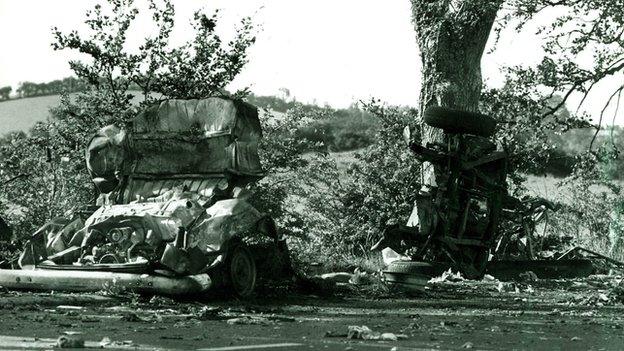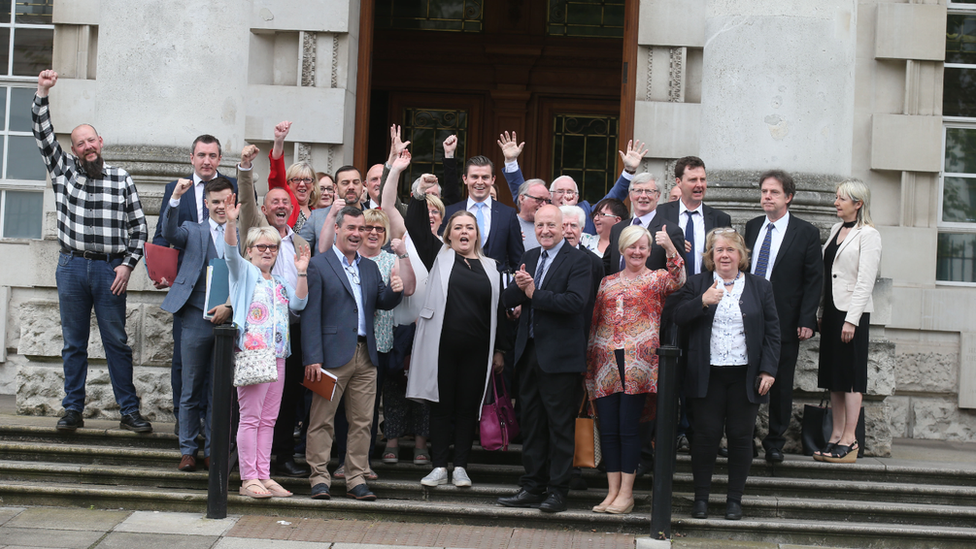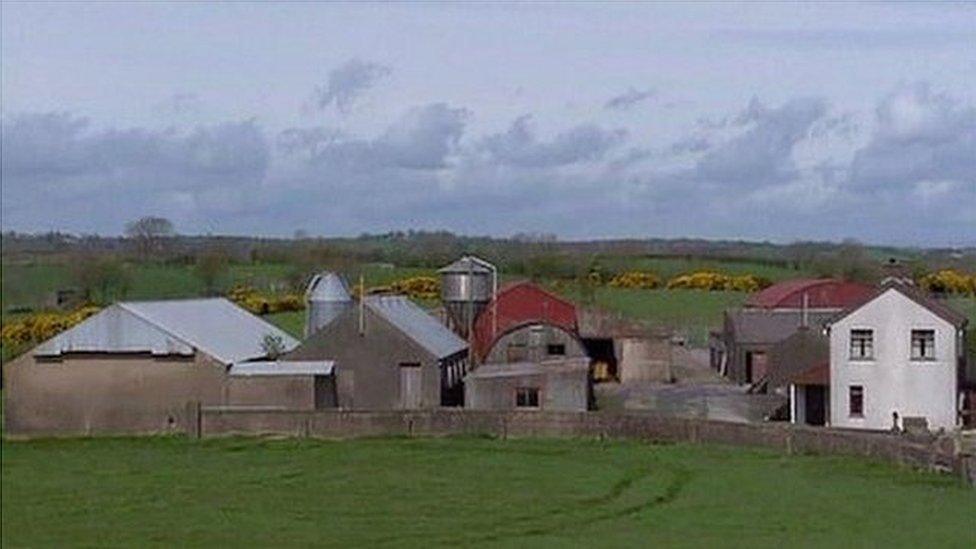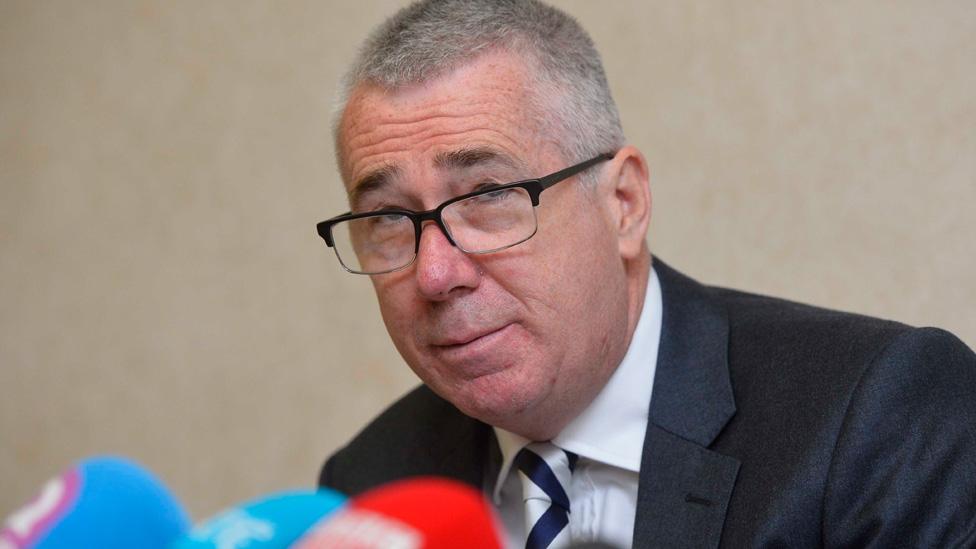Glenanne gang: Families have 'legal and moral right to truth'
- Published

The gang has been linked to killings such as the Miami Showband massacre
The families of those killed by the Glenanne Gang have a "right to the truth", the lead investigator into the killings has said.
Former Bedfordshire Police chief Jon Boutcher is heading a review into the activities of the Glenanne Gang.
The loyalist paramilitary gang has been linked to up to 120 murders and include some serving members of the police and security services.
The terms of reference for the review have now been agreed.
Mr Boutcher will lead the team tasked with identifying the make-up of the gang and establish whether the review of the cases as a whole suggest there were wider issues of collusion.
This follows a court recommendation which ordered the report to be carried out by an independent police team.
"The same structure of independence will be applied to the Glenanne Gang as with the other Kenova-related cases," said Mr Boutcher.
"This includes key elements such as having independent legal counsel, no ex-members of the RUC/PSNI, MOD or intelligence agencies working within the team."

Victims' families and their lawyers welcomed the latest ruling outside the Court of Appeal in July 2019
Mr Boutcher said the victims' families were "remarkable".
"I have already met a number of families affected by these incredibly sad events and have been touched by their great strength and the honesty and integrity of their efforts to find the truth," he added.
"Their stories are incredibly moving and they have both a legal, and moral, right to the truth.
"Our aim is to find the truth for the families and be in a position to answer their previously unanswered questions."
Who were the Glenanne gang?
The Glenanne gang was based at a farm in Glenanne, County Armagh, in the 1970s.
Its members are suspected of involvement in about 90 attacks during the Troubles, including the 1974 Dublin and Monaghan bombings, which killed 33 people, and the 1975 Miami Showband Massacre targeting one of Ireland's best known showbands.
The gang was also implicated in fatal bombings at the Step Inn pub in Keady, County Armagh, and the Hillcrest Bar in Dungannon, County Tyrone.

A farm in Glenanne was alleged to be the base for the gang
An investigation into alleged security force collaboration with the gang was started by the now defunct Historical Enquiries Team (HET).
However, the HET was later abolished and the report, thought to be 80% complete, was shelved.
Families argued they were promised an investigation.
Initial legal proceedings against the PSNI were taken by Edward Barnard, whose 13-year-old brother, Patrick, was killed in the Hillcrest Bar bombing.
The boy was one of four people to die in the no-warning explosion on St Patrick's Day, 1976.
Five years later, Dungannon UVF member Garnet James Busby received a life sentence after admitting his role in the bombing and other terrorist offences.
- Published30 November 2019

- Published5 July 2019
